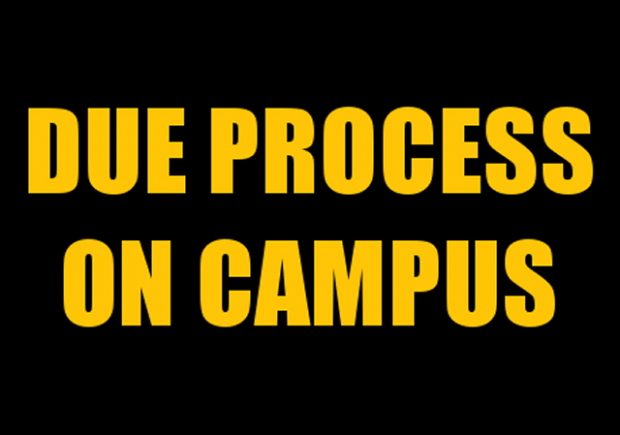RULING: Doe Won. “Purdue’s Process Fell Short of What Even a High School Must Provide to a Student”
Last month, the Chicago-based Seventh Circuit Court of Appeals sided with a student who sued his school for unfairly finding him guilty of sexual assault. Reversing a lower court’s dismissal of John Doe’s claims against Purdue University, Judge Amy Coney Barrett wrote that it was “plausible” that Purdue’s investigation panel “chose to believe Jane [Doe] because she is a woman and to disbelieve John [Doe] because he is a man.” The court held that the university violated the student’s due process rights and engaged in gender discrimination, forbidden by the Title IX statute. Since 2011, the federal government has enforced Title IX in cases of campus sexual assault, with nearly 500 accused students having filed similar lawsuits. In John Doe v. Purdue University, the plaintiff relied solely on a statement written on the accuser’s behalf by the campus victims’ rights office. Despite scant evidence, the Title IX investigator deemed the accuser the more credible party—without ever speaking to her. In what Judge Barrett called a “perplexing” decision, Purdue found the accused student guilty of sexual assault after a hearing in which the accuser didn’t even appear. Doe suffered life-altering consequences, losing his ROTC scholarship and his dream of serving in the Navy. As Barrett noted, “Purdue’s process fell short of what even a high school must provide to a student facing a days-long suspension.” Indeed, university officials appeared to have rendered their verdict upon hearing the accusation…Only a decision from the Sixth Circuit—rendered last September in John Doe v. David H. Baum et al.—exceeded Barrett’s opinion in importance on this issue. In that case, writing for a unanimous panel, Judge Amul Thapar held that in sexual assault adjudications addressing credibility, the due-process clause requires universities to “give the accused student or his agent an opportunity to cross-examine the accuser and adverse witnesses in the presence of a neutral fact-finder.”
While criticism from Democrats is inevitable in this hyper-partisan era, the nature of their opposition remains surprising. Democratic legislators, for instance, have attacked the principle of permitting cross-examination in campus investigations in terms that suggest that they would also oppose cross-examination in criminal and civil sexual assault trials. The increasingly aggressive legislative opposition to fair Title IX procedures also accompanies a troubling shift in the judiciary. Before mid-2018, when universities routinely experienced setbacks in these cases, no meaningful statistical difference existed between the outcome of the case and which party’s president had nominated the judge. In fact, Bill Clinton nominees authored the era’s two most important appeals court decisions for accused students, in cases involving Columbia and Miami University. Since DeVos announced the proposed regulations last November, no noticeable change has occurred with Republican-nominated judges. By contrast, universities have prevailed in 19 of the 26 decisions from Democratic-nominated jurists.
city-journal.org– KC Johnson Recent Ruling May Signal Return to Due Process C.Hays

